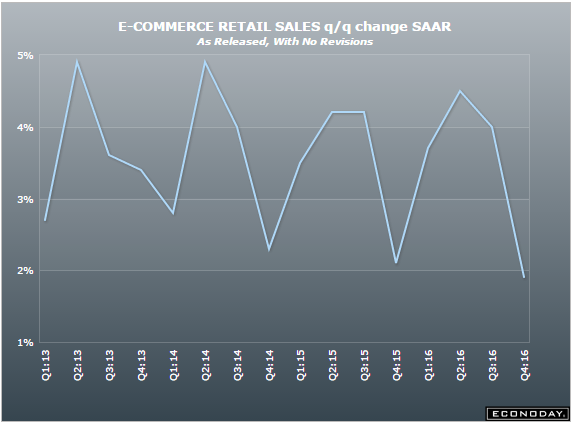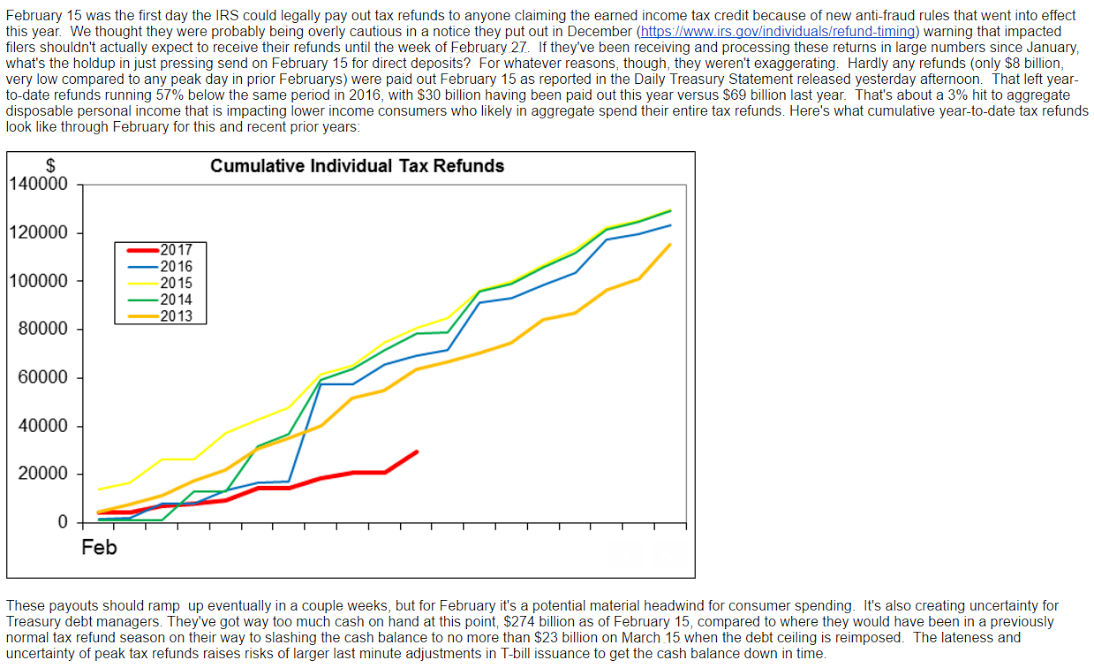This is very euro friendly stuff. Euro Area Current Account Eurozone’s current account surplus widened sharply to EUR 47.0 billion from EUR 41.4 billion in the same month of the previous year. The primary income surplus increased firmly to EUR 18.2 billion from EUR 13.0 billion a year ago and the goods surplus rose to EUR 32.8 billion from EUR 31.4 billion, while the services surplus was nearly unchanged at EUR 6.4 billion. Meanwhile, the secondary income deficit rose to EUR 10.5 billion from EUR 9.3 billion in the same month a year earlier. Considering 2016 full year, the current account surplus widened to EUR 361.8 billion from EUR 316.7 billion in 2015. Imports (real benefits) flat and exports (real costs) growing reduces ‘real terms of trade’ and thereby the real standard of living: And the trade surplus is good for export industries but at the expense of the macro economy: Hi unemployment depresses domestic demand, wages, etc.
Topics:
WARREN MOSLER considers the following as important: Uncategorized
This could be interesting, too:
tom writes The Ukraine war and Europe’s deepening march of folly
Stavros Mavroudeas writes CfP of Marxist Macroeconomic Modelling workgroup – 18th WAPE Forum, Istanbul August 6-8, 2025
Lars Pålsson Syll writes The pretence-of-knowledge syndrome
Dean Baker writes Crypto and Donald Trump’s strategic baseball card reserve
This is very euro friendly stuff.
Euro Area Current Account
Eurozone’s current account surplus widened sharply to EUR 47.0 billion from EUR 41.4 billion in the same month of the previous year. The primary income surplus increased firmly to EUR 18.2 billion from EUR 13.0 billion a year ago and the goods surplus rose to EUR 32.8 billion from EUR 31.4 billion, while the services surplus was nearly unchanged at EUR 6.4 billion. Meanwhile, the secondary income deficit rose to EUR 10.5 billion from EUR 9.3 billion in the same month a year earlier. Considering 2016 full year, the current account surplus widened to EUR 361.8 billion from EUR 316.7 billion in 2015.
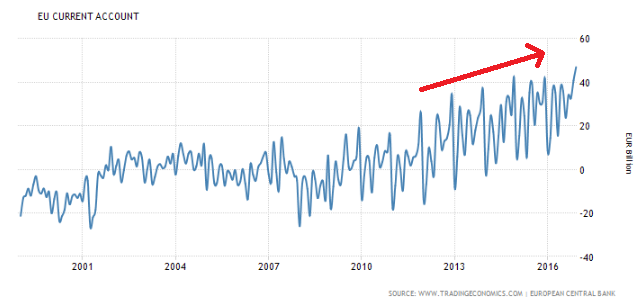
Imports (real benefits) flat and exports (real costs) growing reduces ‘real terms of trade’ and thereby the real standard of living:
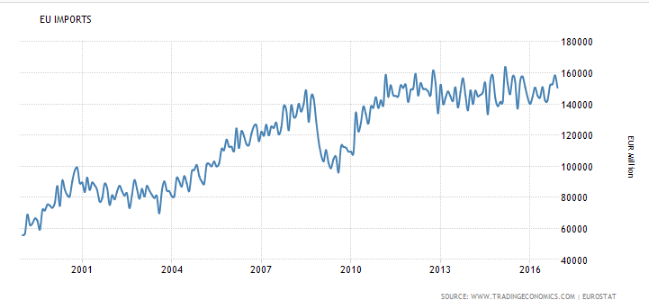
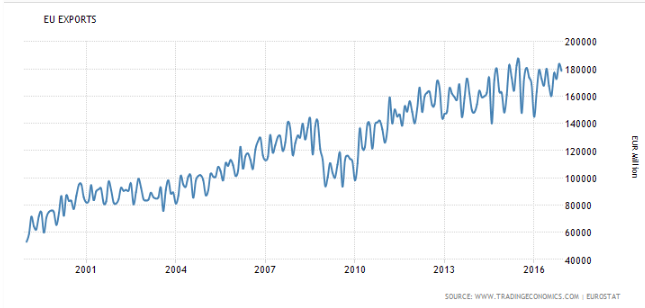
And the trade surplus is good for export industries but at the expense of the macro economy:
Hi unemployment depresses domestic demand, wages, etc. improving ‘competitiveness’:
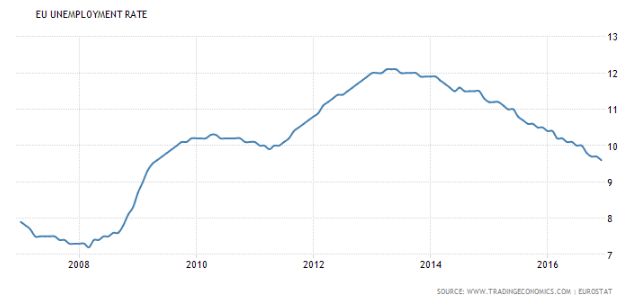
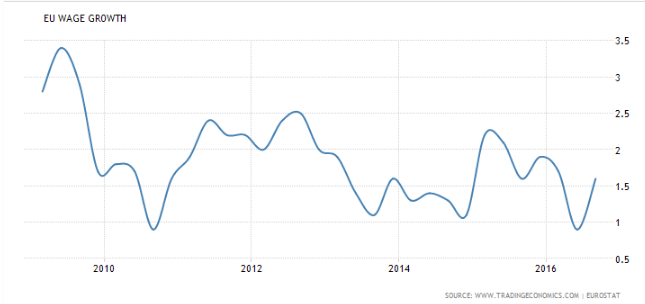
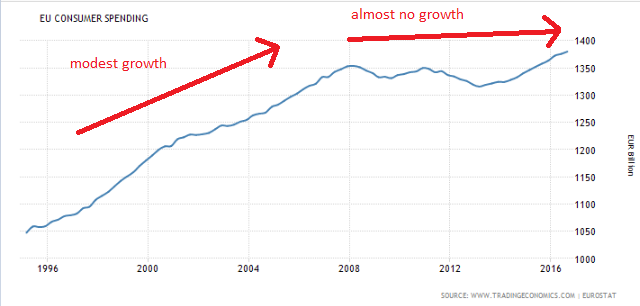
Lower lows:
